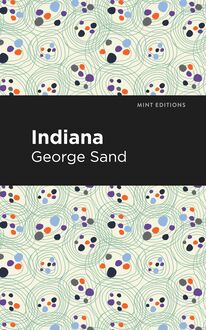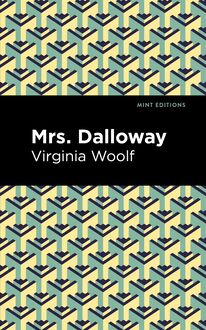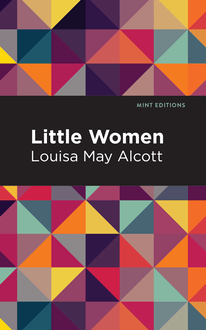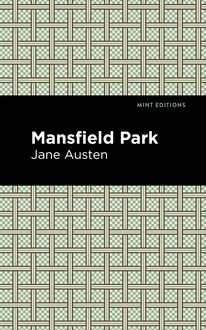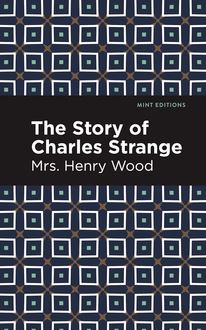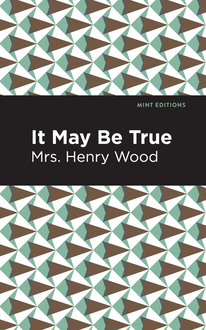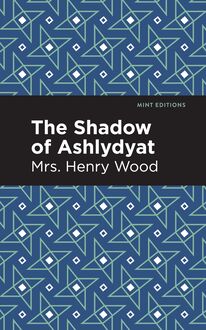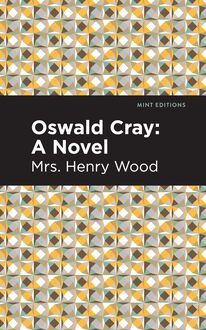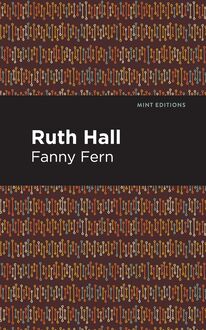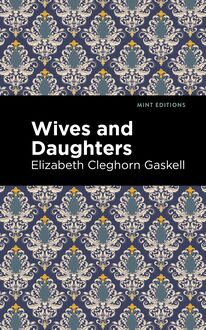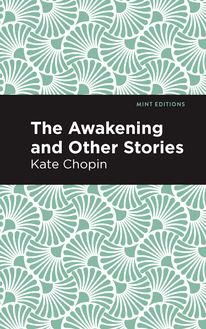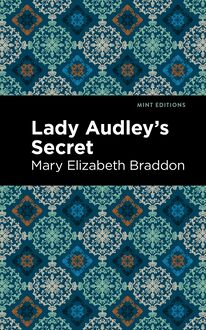-
 Univers
Univers
-
 Ebooks
Ebooks
-
 Livres audio
Livres audio
-
 Presse
Presse
-
 Podcasts
Podcasts
-
 BD
BD
-
 Documents
Documents
-
- Cours
- Révisions
- Ressources pédagogiques
- Sciences de l’éducation
- Manuels scolaires
- Langues
- Travaux de classe
- Annales de BEP
- Etudes supérieures
- Maternelle et primaire
- Fiches de lecture
- Orientation scolaire
- Méthodologie
- Corrigés de devoir
- Annales d’examens et concours
- Annales du bac
- Annales du brevet
- Rapports de stage
La lecture à portée de main
Vous pourrez modifier la taille du texte de cet ouvrage
Découvre YouScribe en t'inscrivant gratuitement
Je m'inscrisDécouvre YouScribe en t'inscrivant gratuitement
Je m'inscrisEn savoir plus
Vous pourrez modifier la taille du texte de cet ouvrage
En savoir plus

Description
When superstition plagues a small village, the workers go on a strike, leaving time for reflection. What started as a normal day in the dreary mining town of Trennach quickly spirals into disarray after the sound of the Seven Whistlers is heard, warning of impending doom. The Seven Whistlers are harbingers of death, said to be the spirits of fishermen and miners killed by accidents related to their trade. According to the legend, an unmistakable bird’s cry can be heard right before a tragedy or death, alerting those nearby. After a miner in Trennach is pierced by this sound, he warns his fellow workers, who band together and refuse to go in the mines to work. However, not everyone in the small town is so inclined to believe in legends, or the word of just one man. Set in the 19th century, Edina: A Novel by Mrs. Henry Wood is a dramatic sensation novel first published nearly one-hundred and fifty years ago in 1876. With vivid description of the setting and intimate portraits of the town’s occupants, including a sickly bookstore owner, a talented doctor, superstitious miners, and more, Edina: A Novel provides modern audiences with an intricate perspective of the Victorian working class and their motivations. With timeless themes of morality, class, and the supernatural, Edina: A Novel is both compelling and insightful. This edition of Edina: A Novel by Mrs. Henry Wood now features a striking new cover design and is printed in a font that is both modern and readable. With these accommodations, this edition of Edina: A Novel crafts an accessible and pleasant reading experience for modern audiences while restoring the original sentiment and drama of Mrs. Henry Wood’s work.
Sujets
Informations
| Publié par | Mint Editions |
| Date de parution | 14 mai 2021 |
| Nombre de lectures | 0 |
| EAN13 | 9781513286167 |
| Langue | English |
| Poids de l'ouvrage | 1 Mo |
Informations légales : prix de location à la page 0,0500€. Cette information est donnée uniquement à titre indicatif conformément à la législation en vigueur.
Extrait
Edina
A Novel
Mrs. Henry Wood
Edina: A Novel was first published in 1876.
This edition published by Mint Editions 2021.
ISBN 9781513281148 | E-ISBN 9781513286167
Published by Mint Editions®
minteditionbooks.com
Publishing Director: Jennifer Newens
Design & Production: Rachel Lopez Metzger
Project Manager: Micaela Clark
Typesetting: Westchester Publishing Services
C ONTENTS P ART THE F IRST I. H EARD AT M IDNIGHT II. R OSALINE B ELL III. O N THE B ARE P LAIN IV. W AITING FOR B ELL V. M ISSING VI. D INING AT THE M OUNT VII. E DINA ’ S R OMANCE VIII. R OSE - COLOURED D REAMS IX. P LANNING O UT THE F UTURE X. M AJOR AND M RS . R AYNOR XI. S CHEMING XII. T HE W EDDING XIII. U NDER THE S TARS XIV. I N THE C HURCHYARD XV. L OOKING O UT FOR E DINA XVI. C OMMOTION XVII. B ROUGHT TO THE S URFACE XVIII. A S UBTLE E NEMY P ART THE S ECOND I. A T E AGLES ’ N EST II. A PPREHENSIONS III. A T IGER IV. A T J ETTY ’ S V. S IR P HILIP ’ S M ISSION VI. S TARTLING N EWS VII. F RANK R AYNOR F OLLOWED VIII. T HE N EW H OME IX. M R . M AX B ROWN X. A N IGHT A LARM P ART THE T HIRD I. L AUREL C OTTAGE II. J EALOUSY III. C ROPPING U P A GAIN IV. H UMILIATION V. T HE M ISSING D ESK VI. U NDER THE C HURCH W ALLS VII. M EETING A GAIN VIII. H ARD L INES IX. T EARS X. M ADEMOISELLE ’ S L ETTER XI. S UNSHINE
PART THE FIRST
I
H EARD AT M IDNIGHT
The village, in which the first scenes of this history are laid, was called Trennach; and the land about it was bleak and bare and dreary enough, though situated in the grand old county of Cornwall. For mines lay around, with all the signs and features of miners’ work about them; yawning pit mouths, leading down to rich beds of minerals—some of the mines in all the bustle of full operation, some worked out and abandoned. Again, in the neighbourhood of these, might be seen miners’ huts and other dwelling-places, and the counting-houses attached to the shafts. The little village of Trennach skirted this tract of labour; for, while the mining district extended for some miles on one side the hamlet; on the other side, half-an-hour’s quiet walking brought you to a different country altogether—to spreading trees and rich pasture land and luxuriant vegetation.
The village street chiefly consisted of shops. Very humble shops, most of them; but the miners and the other inhabitants, out of reach of better, found them sufficiently good for their purposes. Most of the shops dealt in mixed articles, and might be called general shops. The linendraper added brushes and brooms to his cottons and stuffs; the grocer sold saucepans and gridirons; the baker did a thriving trade in home-made pickles. On a dark night, the most cheerful-looking shop was the druggist’s: the coloured globes displayed in its windows sending forth their reflections into the thoroughfare. This shop had also added another branch to its legitimate trade—that of general literature: for the one solitary doctor of the place dispensed his own medicines, and the sale of drugs was not great. The shop boasted a small circulating library; the miners and the miners’ wives, like their betters, being fond of sensational fiction. The books consisted entirely of cheap volumes, issued at a shilling or two shillings each; some indeed at sixpence. The proprietor of this mart, Edmund Float, chemist and druggist, was almost a confirmed invalid, and would often be laid up for a week at a time. The doctor told him that if he would devote less of his time to that noted hostelry, the Golden Shaft, he might escape these attacks of illness. At these times the business of the shop, both as to drugs and books, was transacted by a young native of Falmouth; one Blase Pellet, who had served his apprenticeship in it and remained on as assistant.
The doctor’s name was Raynor. He wrote himself Hugh Raynor, M.D., Member of the Royal College of Physicians. That he, a man of fair ability in his profession and a gentleman as well, should be contented to live in this obscure place, in all the drudgery of a general practitioner and apothecary, may seem a matter of surprise—but his history shall be given further on. His house stood in the middle of the village, somewhat back from the street: a low, square, detached building, a bow window on each side its entrance, and three windows above. On the door, which always stood open in the daytime, was a brass plate, bearing the name, “Dr. Raynor.” The bow window to the left was screened by a brown wire blind, displaying the word “Surgery” in large white letters. Above the blind Dr. Raynor’s white head, or the younger head of his handsome nephew, might occasionally be seen by the passers-by, or by Mr. Blase Pellet over the way. For the doctor’s house and the druggist’s shop faced each other; and Mr. Pellet, being of an inquisitive disposition, seemed never tired of peeping and peering into his neighbours’ doings generally, and especially into any that might take place at Dr. Raynor’s. At either end of this rather straggling street were seated respectively the parish church and the Wesleyan meeting-house. The latter was the better attended; for most of the miners followed their fathers’ faith—that of the Wesleyan Methodists.
It was Monday morning, and a cold clear day in March. The wind came sweeping down the wide street; the dust whirled in the air; overhead, the sun was shining brightly. Dr. Raynor stood near the fire in his surgery, looking over his day-book, in which a summary of the cases under treatment was entered. He was dressed in black. A tall, grand-looking, elderly man, very quiet in manner, with a pale, placid face, and carefully-trimmed thin white whiskers. It was eight o’clock, and he had just entered the surgery: his nephew had already been in it half-an-hour. Never a more active man in his work than Dr. Raynor, but latterly his energy had strangely failed him.
“Has any message come in this morning from Pollock’s wife, Frank?” he asked.
“No, sir.”
“Then I suppose she’s better,” remarked the doctor, closing the book as he spoke, and moving towards the window.
A square table stood at the end of the room, facing the window. Behind it was Frank Raynor, making up mixtures, the ingredients for which he took from some of the various bottles ranged upon the shelves behind him. He was a slender, gentlemanly young fellow of four-and-twenty, rather above the middle height, and wore this morning a suit of grey clothes. The thought that passed through a stranger’s minds on first seeing Frank Raynor was, How good-looking he is! It was not, however, so much in physical beauty that the good looks consisted, as in the bright expression of his well-featured face, and the sunny, laughing blue eyes. The face wanted one thing—firmness. In the delicate mouth, very sweet and pleasant in form though it was, might be traced his want of stability. He could not say No to a petition, let it be what it might: he was swayed as easily as the wind. Most lovable was Frank Raynor; but he would be almost sure to be his own enemy as he went through life. You could not help liking him; every one did that—with the exception of Mr. Blase Pellet across the road. Frank’s hair was golden brown, curling slightly, and worn rather long. His face, like his uncle’s, was close-shaved, excepting that he too wore whiskers, which were of the same colour as the hair.
“What a number of men are standing about!” exclaimed Dr. Raynor, looking over the blind. “More even than usual on a Monday morning. One might think they were not at work.”
“They are not at work,” replied Frank. “As I hear.
“No! what’s that for?”
Frank’s lips parted with a smile. An amused look sat in his blue eyes as he answered.
“Through some superstition, I fancy, Uncle Hugh. They say the Seven Whistlers were heard in the night.”
Dr. Raynor turned quickly towards his nephew. “The Seven Whistlers;” he repeated. “Why, who says that?”
“Ross told me. He came in for some laudanum for his neuralgia. As there is to be no work done to-day, the overseer thought he might as well lie up and doctor himself. A rare temper he is in.”
“Can’t he get the men to work?”
“Not one of them. Threats and promises alike fail. There’s safe to be an accident if they go down to-day, say the men; and they won’t risk it. Bell had better not come in Ross’s way whilst his present temper lasts,” added Frank, as he began to screw a cork into a bottle. “I think Ross would knock him down.”
“Why Bell in particular?”
“Because it is Bell who professes to have heard the Whistlers.”
“And none of the others?” cried the doctor.
“I fancy not. Uncle Hugh, what is the superstition?” added Frank. “What does it mean? I don’t understand: and Ross, when I asked him, he turned away instead of answering me. Is it something especially ridiculous?”
Dr. Raynor briefly replied. This superstition of the Seven Whistlers arose from certain sounds in the air. They were supposed by the miners, when heard—which was very rarely, indeed, in this neighbourhood—to foretell ill luck. Accident, death, all sorts of calamities, in fact, might be expected, according to the popular superstition, by those who had the misfortune to hear the sounds.
Frank Raynor listened to the doctor’s short explanation, a glow of amusement on his face. It sounded to him like a bit of absurd fun.
“You don’t believe in such nonsense, surely, Uncle Hugh!”
Dr. Raynor had returned to the fire, and was gazing into it; some speculation, or perhaps recollection, or it might be doubt, in his grey eyes.
“All my experience in regard to the Seven Whistlers is this, Frank—and you may make the most of it. Many years ago, when I was staying amongst the collieries in North Warwickshire, there arose a commotion one morning. The men did not want to go down the pits that day, giving as a reason that the Seven Whistlers had passed over the place during the night, and had been heard by many of them. I naturally inquired what the Seven Whistlers meant,
-
 Univers
Univers
-
 Ebooks
Ebooks
-
 Livres audio
Livres audio
-
 Presse
Presse
-
 Podcasts
Podcasts
-
 BD
BD
-
 Documents
Documents
-
Jeunesse
-
Littérature
-
Ressources professionnelles
-
Santé et bien-être
-
Savoirs
-
Education
-
Loisirs et hobbies
-
Art, musique et cinéma
-
Actualité et débat de société
-
Jeunesse
-
Littérature
-
Ressources professionnelles
-
Santé et bien-être
-
Savoirs
-
Education
-
Loisirs et hobbies
-
Art, musique et cinéma
-
Actualité et débat de société
-
Actualités
-
Lifestyle
-
Presse jeunesse
-
Presse professionnelle
-
Pratique
-
Presse sportive
-
Presse internationale
-
Culture & Médias
-
Action et Aventures
-
Science-fiction et Fantasy
-
Société
-
Jeunesse
-
Littérature
-
Ressources professionnelles
-
Santé et bien-être
-
Savoirs
-
Education
-
Loisirs et hobbies
-
Art, musique et cinéma
-
Actualité et débat de société
- Cours
- Révisions
- Ressources pédagogiques
- Sciences de l’éducation
- Manuels scolaires
- Langues
- Travaux de classe
- Annales de BEP
- Etudes supérieures
- Maternelle et primaire
- Fiches de lecture
- Orientation scolaire
- Méthodologie
- Corrigés de devoir
- Annales d’examens et concours
- Annales du bac
- Annales du brevet
- Rapports de stage
